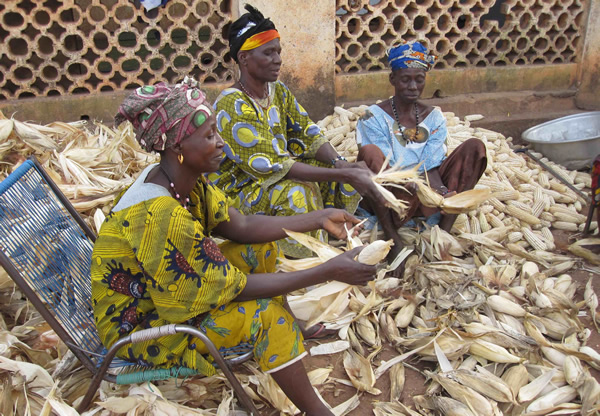
In recent years there has been a growing consensus among developing country governments and international donors of a need to increase investments in agricultural research. Research plays a crucial role in stimulating growth in the agricultural sector and this makes a vital contribution to economic development and poverty reduction.
Providing more resources for research, however, will only bring benefits if there is sufficient human capacity to make use of them. In most countries in Africa there are too few researchers and many of them lack key skills needed in both basic and applied research. NRI is working with partner organisations, especially in Africa, to help enhance the skills of researchers and to strengthen the organisations and systems in which they function.
An example of such collaboration is the project Strengthening Capacity for Agricultural Research in Africa (SCARDA) which was led by the Forum for Agricultural Research in Africa (FARA) and funded by the UK's Department for International Development (DFID). The aim of SCARDA, which ran from 2007 to 2010, was to develop and test an approach to capacity strengthening that enables national research and education organisations to identify and address their priority capacity needs in order to improve their performance. NRI contributed to the design and implementation of the project, providing technical support to FARA and other partners in ten countries in sub-Saharan Africa.
One of the research organisations supported through the project was the National Agricultural Research Institute (NARI) in the Gambia. SCARDA helped NARI staff to acquire new skills in several areas and helped it to transform its financial management procedures. The institute set up a business development team, which has brought in a large amount of consultancy income and has generated new ventures such as the cultivation and sale of medicinal plants. Mama Miriama Saho, the chair of the team, was sponsored by the project to study for an MSc in Food Safety and Quality Management at NRI. On her return to the Gambia, Ms Saho took up a new post as Head of NARI's livestock research and she is also using her newly acquired knowledge to contribute to national policy development. She helped draft a national food safety bill and was involved in the planning for a new national food agency. As stated by Mr Lamin Jobe, NARI's Director of Research, SCARDA was the catalyst for positive change in the way the Institute operates and this has led to significant improvement in its performance.
In Botswana, SCARDA worked with the Department of Agricultural Research and the Botswana College of Agriculture. The project helped them to work together more effectively and to identify areas in which they could provide more direct support to farmers and other users of research outputs. Inspired by training workshops led by NRI on farmer participatory research and innovation systems, these organisations are supporting a newly-formed Smallstock Industry Federation of Botswana in an Innovation Platform for Smallstock. The Platform has already made progress in bringing about an important policy change that provides stronger incentives for producers to improve their production. This is an important step in developing a stronger market for meat products and ensuring viable returns for farmers.
The promising results of innovation partnerships in Botswana and elsewhere in SCARDA led to further support from DFID to explore how the capacity needs of different organisations involved in multi-stakeholder agricultural research initiatives can be identified and addressed. This work is now being documented and early findings can be accessed on a website hosted by the Regional Universities Forum for Capacity Building in Agriculture, one of the partner organisations in SCARDA (see http://ruforum.org/a/scain/).
Tim Chancellor

